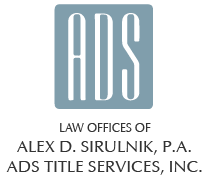
Finding the right brick and mortar for your business can be a painstaking endeavor, but taking the time to find the perfect property in the perfect location is essential to the success of your entire operation.
Once you’ve found the right space, it’s then equally important to negotiate equitable terms for your business lease. An experienced real estate attorney can help you review and modify the lease agreement, so it is fair and meets your needs as a tenant.
Important Elements of a Commercial Lease Agreement in Florida
Commercial lease agreements are essential legal documents, yet they are notoriously complicated. You shouldn’t start signing away on any dotted lines without feeling confident that the contract terms suit your business needs.
Because it can be easy to get lost in the legalese of a commercial lease agreement, we strongly urge you to speak with an experienced local real estate attorney before entering into any lease negotiations with a potential landlord.
Commercial leases are typically longer than residential lease agreements and tenants often are committing to multi-year terms. You want those years to be profitable for your business and not a drain on your resources all because you locked into an unfavorable commercial lease agreement. Here are some important terms to pay attention to
- The length of the lease – Commercial lease terms are commonly three to five (or more) years in length. Be sure to know the start and end dates of the lease, the type of term, and negotiate if necessary.
- Payment structure – What are your monthly payment responsibilities? How much is rent and how are the other expenses, such as insurance, property taxes, maintenance, utilities, etc., handled?
- Tenant improvement allowance – Does the landlord offer money to make improvements to the property? If so, how much and what are the details of that allowance?
- Zoning laws – Miami has strict zoning requirements for its commercial buildings. As a tenant, it’s also your responsibility to know those laws and ensure you are allowed to conduct business in a given zone.
- Transfer structure – What are your options if you decide to sell your business before the end of the lease term? Typically, this includes the option of transferring the lease to the new owner, a new tenant or subletting the lease to another tenant. If subletting, it’s your responsibility to continue making payments to the landlord after collecting payment from the new tenant who is subletting from you.
- Personal guarantee – Some lease agreements may require you to provide a personal guarantee on the lease agreement in the event that your corporate entity were to fold or not be able to meet your lease obligations. It’s in your best interest not to do this. We recommend speaking with an experienced commercial real estate attorney before taking any action.
The above items are a mere handful of the many components of a Florida commercial lease agreement, and each item can bear significant importance on your overall contract. Before signing any commercial lease agreement, give us a call at the Law Offices of Alex D. Sirulnik, P.A. We will help you negotiate a strong and favorable lease agreement for your Florida business.



